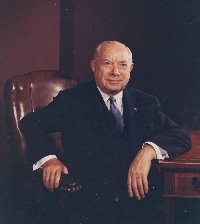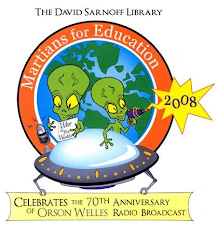First up was Yamauchi "Yanchy" Fumitaka of University of Tokyo's Institute of  Oriental Culture. A cultural anthropologist by training, Yanchy is studying the relationships created between Japan and Korea by sound recording early in the 20th century, when Japan dominated Korea's audio entertainment industry. After completing a semester at Yale University through the Todai-Yale Initiative, he arranged a visit to the Library to draw on its runs of RCA publications for information on the company's international connections in the 1920s and early 1930s.
Oriental Culture. A cultural anthropologist by training, Yanchy is studying the relationships created between Japan and Korea by sound recording early in the 20th century, when Japan dominated Korea's audio entertainment industry. After completing a semester at Yale University through the Todai-Yale Initiative, he arranged a visit to the Library to draw on its runs of RCA publications for information on the company's international connections in the 1920s and early 1930s.
 Oriental Culture. A cultural anthropologist by training, Yanchy is studying the relationships created between Japan and Korea by sound recording early in the 20th century, when Japan dominated Korea's audio entertainment industry. After completing a semester at Yale University through the Todai-Yale Initiative, he arranged a visit to the Library to draw on its runs of RCA publications for information on the company's international connections in the 1920s and early 1930s.
Oriental Culture. A cultural anthropologist by training, Yanchy is studying the relationships created between Japan and Korea by sound recording early in the 20th century, when Japan dominated Korea's audio entertainment industry. After completing a semester at Yale University through the Todai-Yale Initiative, he arranged a visit to the Library to draw on its runs of RCA publications for information on the company's international connections in the 1920s and early 1930s.Three weeks later, after Yanchy had returned to the humidity of Tokyo in August, Mi-Hye Chyun of Rider University's Westminster Choir College emailed the Library about several Korean records made by the Victor Talking Machine Company between 1908 and 1910. The Library doesn't have a set of Victor's catalogs, but Alex put her in touch with Yanchy and connected her to the University of California, Santa Barbara's Encyclopedic Discography of Victor Recordings. The discographers note on their site that their knowledge of East Asian Victor recordings is especially weak, so perhaps these connections will help improve it.
Just as Yanchy was sitting down to begin paging through the RCA News, in came an email from Marina Cañardo of the University of Buenos Aires (Universidad de Buenos Aires). Marina is a doctoral student in musicology and is researching "the relationship between Argentine popular music and the recording industry in the 1920s." Alex wrote her what he knew about sources in the United States and connected her to Yanchy and his professional colleague, Professor Susan Schmidt-Horning of St. John's University. Professor Schmidt-Horning is finishing her book, Chasing Sound: Recording Studios in America, almost as this is written, and looks forward to meeting her new colleagues at a suitable SHOT or ICOHTEC or other scholarly meeting.
Would you like to know what the Library and other organizations offer in the field of recording history? Here's what Alex wrote Marina:
". . . we have posted the significant Victor documents owned by the Library on the website: the two Sooy memoirs (based on their journals) and the history of Victor by B(enjamin). L. Aldridge.
. . . Unfortunately, the David Sarnoff Library has no information on the corporate operation of the Victor company or its domestic or international recording groups. Mr. Sarnoff kept virtually no records of his management of RCA, and we have yet to receive any collections of papers related to Victor's record business.
. . . Unfortunately, the David Sarnoff Library has no information on the corporate operation of the Victor company or its domestic or international recording groups. Mr. Sarnoff kept virtually no records of his management of RCA, and we have yet to receive any collections of papers related to Victor's record business.
"BMG, which bought RCA Records from General Electric Company in 1987, has records of recording dates at its archives in New York City. But corporate archives do not exist for outside researchers, and it is difficult to get access to BMG's Victor data.
"The best source that I know of is Eldridge Johnson's papers. Johnson started and ran Victor until 1927. His papers are located at the American Heritage Center in Wyoming, with photocopies at the Johnson Victrola Museum in Dover, Delaware. His correspondents included the head of the recording division and possibly Mr. Staats. Unfortunately, the AHC does not list the collection in its online catalog, and the Victrola Museum is not easily used by archival researchers, especially at a distance.
"Another source of information would be the 78-L List. The variety of collectors there may be able to help you with specific questions.
"Victor published a magazine, Voice of the Victor, for its dealers for about 25 years. There is a Spanish-language version for Latin America from 1915-31. A dealer in Uruguay sold several copies on Ebay several years ago. The Camden County Historical Society in Camden, NJ, has a large set of the English-language edition, and the Glendale Public Library in California has a large but incomplete collection as well.
"Some other writers on the music side of the record business are Ruth Glasser (My Music is my Flag: Puerto Rican Musicians and Their New York Communities, 1917-1940; U. of California Press, 2000) and David Suisman (The Sound of Money: Music, Machines, and Markets, 1890-1925, Columbia University dissertation, 2002), and William Howland Kenney (Recorded Music in American Life: The Phonograph and Popular Memory, 1890-1945; Oxford U. P., 1999). Their bibliographies may offer you some other avenues for research."



No comments:
Post a Comment